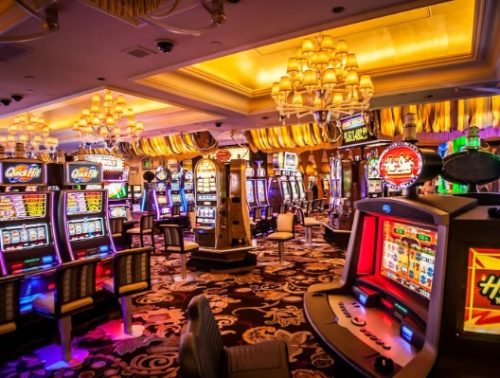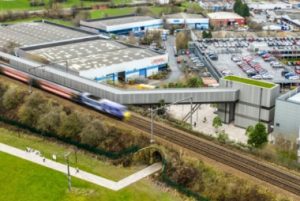What Gaming Hubs Tell Us About Regeneration Success Stories

Across the UK, cities have long sought ways to breathe new life into underused or neglected areas. Some of the most surprising success stories have come from sectors once considered unlikely catalysts for urban renewal. One of these is gaming. From entertainment complexes to digital hubs, the gaming sector — including both land-based and online elements — is playing a bigger role in economic regeneration than many realise. Looking at how gaming hubs have transformed communities reveals important lessons for future development projects.
How Gaming Sparks New Economic Life
Gaming hubs often act as anchors for wider regeneration projects. Whether it’s a casino resort, a new esports arena, or a tech park focused on game development, these projects attract visitors, create jobs, and stimulate nearby businesses. What starts as a single large investment can quickly ripple out into restaurants, retail, hospitality, and infrastructure improvements. Cities like Birmingham and Manchester have already witnessed the knock-on effects when gaming-related developments take hold.
A similar pattern can be seen in the rise of gambling sites not on GamStop, which have become extremely popular in recent years. These platforms offer players greater choice, more flexible deposit limits, and faster payouts, making them attractive alternatives to traditional options. Their growth also reflects a broader trend — that people are increasingly seeking entertainment experiences that offer more freedom and variety. The success of these sites mirrors how physical gaming hubs draw people by offering something fresh and dynamic.
The Role of Gaming in Tourism Growth
Gaming venues are now powerful drivers of tourism, bringing visitors not just for gaming itself, but for concerts, exhibitions, conferences, and shopping. A well-placed casino, for instance, can transform an otherwise overlooked area into a bustling leisure destination. In places like Glasgow and London’s Docklands, gaming developments have attracted both domestic visitors and international tourists, boosting local economies beyond initial expectations.
This influx supports more than just direct gaming revenue. Hotels, transport networks, restaurants, and local attractions all benefit from increased footfall. Areas once considered commercially unviable become magnets for investment. For city planners and business leaders, gaming hubs offer a blueprint for how leisure can serve as the cornerstone of a wider regeneration strategy.
Tech Hubs and the Digital Gaming Boom
It’s not only physical casinos driving change. The rise of digital gaming companies, especially those working in software development, esports, and online gaming infrastructure, has created vibrant tech corridors in several UK cities. Leeds, Sheffield, and Nottingham are examples where investments in gaming tech and the broader gaming industry have helped reshape local economies, attracting skilled workers and sparking fresh rounds of startup activity.
These businesses are often drawn to areas offering affordable office space, good transport links, and access to talent — the same ingredients needed for regeneration success. By fostering local partnerships with universities and councils, gaming tech firms contribute to a sustainable economic ecosystem, creating opportunities that go far beyond the industry itself.
Education and Skills Development in Gaming-Led Cities
Another overlooked benefit of gaming hubs is their role in driving education and upskilling initiatives. Many areas that have embraced gaming-related investments have seen an increase in collaboration between local authorities, private sector players, and educational institutions. Colleges and universities are expanding their courses to include game design, coding, hospitality management, and digital marketing, all closely tied to opportunities created by the sector.
This focus on skills is crucial for ensuring that regeneration efforts are long-lasting. Instead of simply creating low-wage, transient jobs, gaming hubs are helping build career paths and specialist skill sets that can anchor communities for decades to come. The combination of job creation and education fuels both economic resilience and social mobility in regions that previously lacked such prospects.
Lessons for Future Regeneration Projects
One of the biggest takeaways from gaming-led regeneration is the importance of embracing industries that have been overlooked or misunderstood. Twenty years ago, betting and gaming might have been seen as fringe economic drivers. Today, their impact on jobs, investment, and community renewal is clear. Smart cities are realising that entertainment is not just a leisure activity — it’s a serious economic force.
Future regeneration projects can learn from this by staying open to unconventional growth sectors. Rather than relying solely on traditional industries like finance or manufacturing, regions can tap into newer, more dynamic sectors to spark sustainable change. Gaming shows that with the right planning and community engagement, even industries with complex reputations can become engines for positive development.
Conclusion
Gaming hubs have proven to be unlikely but powerful players in urban regeneration. From creating new jobs and attracting tourists to anchoring tech investment, their impact stretches far beyond the gaming floor or online platform. As cities continue to evolve, looking to the successes — and lessons — of the gaming sector can help shape a more vibrant and resilient future.








